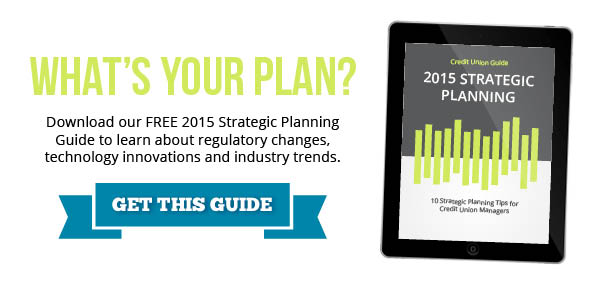
Your list of issues for consideration in strategic discussion is probably long. It might include declining non-interest income, potential margin squeeze as market interest rates rise and liabilities reprice faster than assets, mining loan demand from aging members and attracting younger members to fuel future growth. It's time to add another item to the list—a disruptive force that's coming to the payments arena.
Will Your Next Credit Card be a Phone?
 In case you haven’t heard, Apple introduced its latest iPhone in mid-September. The new devices, which come in regular and super-sized versions, reportedly have a faster processor, longer battery life, a better camera and visual display.
In case you haven’t heard, Apple introduced its latest iPhone in mid-September. The new devices, which come in regular and super-sized versions, reportedly have a faster processor, longer battery life, a better camera and visual display.
But forget about all of that, because you need to know about a game-changing mobile wallet called “Apple Pay.” Think Apple Pay isn't a big deal? Think about how many of your members (and their children) have an iPhone. How many people actually have a camera that is NOT a part of their phone? Find someone from Kodak and ask about digital photography or a Blockbuster employee who still thinks streaming video is not a threat.
But Apple Pay isn't the only game in Payments Town. There's also EMV (Euro MasterCard VISA), the little chips that are going to replace magnetic stripes on all forms of plastic cards, saving us from “card present” transaction fraud. For “card not present”—like those late night purchases from Amazon and Zappos—tokenization promises to foil fraudsters.
Who's Footing the Bill?
 Then there's the ongoing battle between merchants and financial institutions about who pays for the payments infrastructure. I'm old enough to remember when merchants had to collect on hot checks. They did it by taping returned checks to the cash register in the checkout so friends and neighbors could see that you couldn’t take care of business. Today, merchants accept debit payments that are online, in real-time with guaranteed payment—and they begrudge the cost of the process.
Then there's the ongoing battle between merchants and financial institutions about who pays for the payments infrastructure. I'm old enough to remember when merchants had to collect on hot checks. They did it by taping returned checks to the cash register in the checkout so friends and neighbors could see that you couldn’t take care of business. Today, merchants accept debit payments that are online, in real-time with guaranteed payment—and they begrudge the cost of the process.
Enter the Merchant Customer Exchange (MCX), a consortium of 60+ merchants including Walmart, Southwest Airlines, Lowes, Sears and 7-11. This group is exploring options to move debit transactions onto ACH rails just like Walmart started doing years ago when it converted personal checks to ACH items at the cash register. MCX’s motivation is improved profitability. On average, a merchant pays $2.80 in interchange for every $100 debit payment. The average cost for a $100 ACH payment is approximately $0.06.
How much income does your credit union get from debit interchange? How much do you stand to lose if MCX and other merchants hop the debit tracks and move to ACH? What will the change mean to your operating procedures?
Today, the payments revolution is being led by big players like MasterCard and VISA, and non-traditional players like Apple. Credit unions will need to get on board or be left behind. Ask yourself, where would you be today if you had failed to issue debit cards or provide on-line and mobile transaction services? How many share draft accounts would you have? We are all chasing younger members who hold promise as future borrowers. Will Gen X, Y, or Z choose a credit union that does not provide the payments services they want?
Your credit union needs a payments strategy and a mobile strategy. If payments and mobile are not on your discussion list, they should be.
By Dean Borland, SCMS, CUDE, VP Product Development, Credit Union Resources, Inc.
%20formatted-1.png?width=2528&height=739&name=SIGNiX%20Logo%20Main%20(white)%20formatted-1.png)

